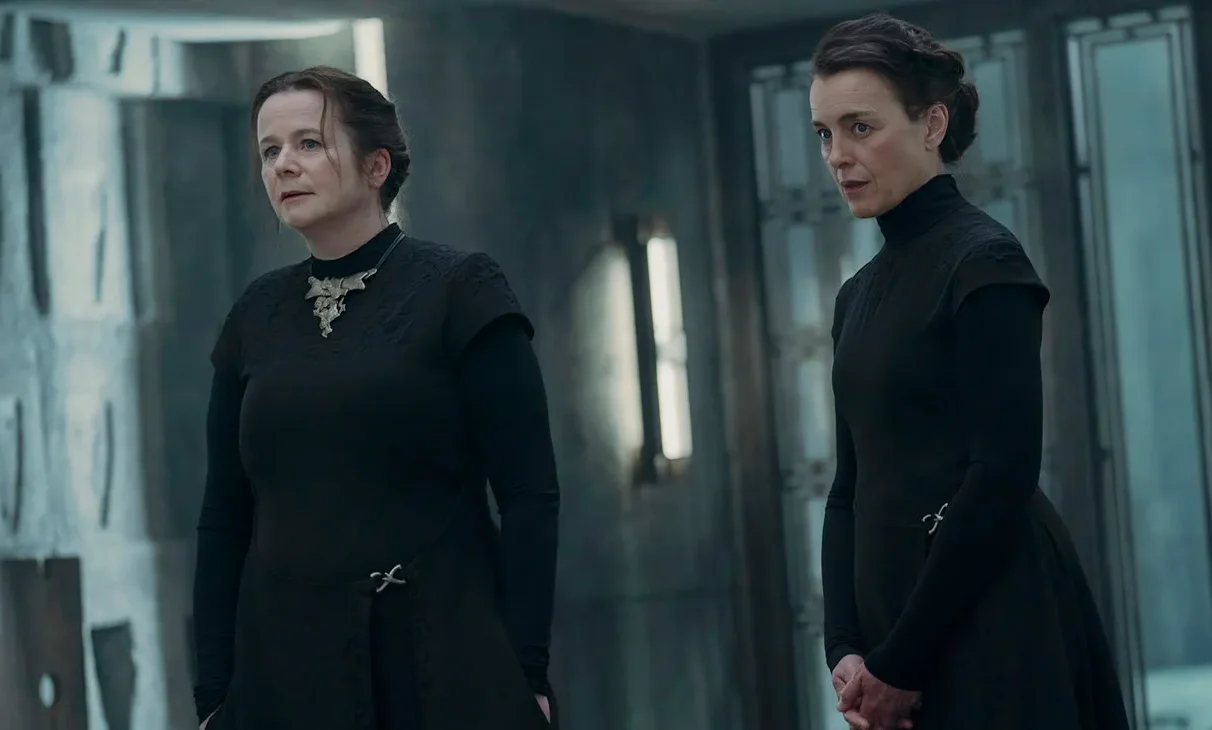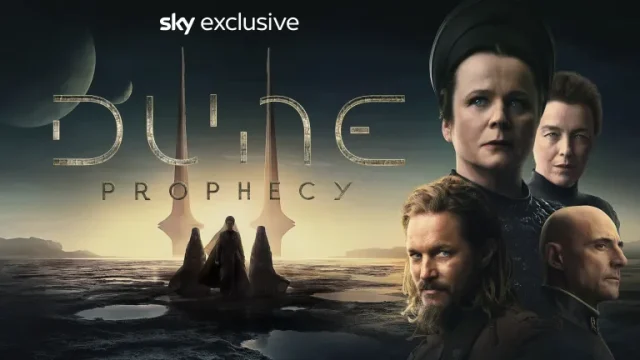Dune: Prophecy

Set in Frank Herbert’s Dune universe, 10,000 years before the birth of Paul Atreides, Dune: Prophecy is an adaptation of Sisterhood of Dune, co-written by the author’s son Brian and Kevin J. Anderson. Much like the other projects in the franchise, Dune: Prophecy continues the “Game of Thrones in space”-esque themes, this time turning our attention to the Bene Gesserit, a powerful sisterhood who undergo intense physical training and mental conditioning to obtain superhuman abilities. The group’s leader Valya Harkonnen (Emily Watson), is attempting to enact a dark secret that will help the sisterhood control the great houses across the Imperium, but a growing crisis out of her control begins to derail her plans for the organisation.
Previously, the Dune franchise has proved notoriously difficult to adapt due to the complexity of the subject matter and world-building. Denis Villeneuve managed to crush any cynicism around it with his 2021 and 2024 movies, and this success has proved timely for this new series, with a fresh audience ready to engage with the material. On the other hand, this prevalence comes with the danger that this series will be trapped in the shadow of its award-winning cinematic cousin.
Dune: Prophecy feels more like an origin story, with the founding and growth of the sisterhood explained in visceral detail in the opening scenes of the first episode. This prologue offers a mere glimpse into what is to come and what unravels is a power struggle between those with great influence and those who have the powers to bring them, and themselves, down in the process. It is a spicey affair to say the least, twisting and turning through a world of politics, scheming and a frightening sense of uncertainty about what is to come.
The cast is endearing enough, with the unflinching Watson, Mark Strong, Travis Fimmel and Olivia Williams instantly proving they are built for this universe. The pacing of each episode, while feeling slow at times and unaided by some cliché dialogue revolving around war and survival, allows for character development and world-building, using flashbacks to create greater depth in relationships and even simply giving the viewer a chance to fully get their head around the complexity of the plot. The set and production design are once again exemplary, although you would expect that the series had an almost infinite budget following the successes of the movies and the backing of HBO. However, while you do get a feeling of the scale of the world, Dune: Prophecy doesn’t quite reach the spectacular heights of Villeneuve’s silver-screen visual feast.
It has been five long years in the making, but the final product has been worth the wait. This enchanting yet terrifying group of powerful, magical women who are capable of manipulating you to the point of death make for powerful protagonists. What the series might lack in any originality, it makes up for in drama. Much like Game of Thrones, no character is safe, so being on tenterhooks is pretty much a full-time occupation for the viewer – but if you are a fan of the books and movies this constant state of anticipation will be a casual sandwalk on the dunes.
Guy Lambert
Dune: Prophecy is released on Sky on 18th November 2024.
Watch the trailer for Dune: Prophecy here:

























Facebook
Twitter
Instagram
YouTube
RSS